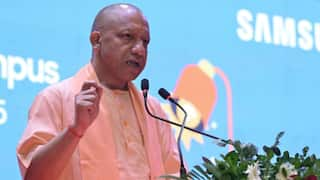Mastering UPSC Mains: Advanced Answer Writing Techniques For Evolving Exam Patterns
Master UPSC Mains with key techniques for clear, coherent answer writing that merges static knowledge with current events.

By Ravi Kapoor
As the UPSC Mains exam approaches, it is essential to align your preparation with the evolving nature of the exam. The exam no longer just focuses on rote memorization but demands analytical thinking, conceptual clarity, and the ability to connect static knowledge with dynamic current events. The ability to write crisp, clear, and coherent answers is key to scoring well in the Mains, and in this article, we will explore the most effective answer-writing techniques that align with the evolving exam patterns.
Answer Writing Techniques For UPSC Mains Exam
- Conceptual Clarity
One of the fundamental aspects of writing a good answer in the Mains exam is ensuring that you have a solid grasp of the core concepts. Before diving into writing an answer, always ensure that you understand the underlying theory or subject matter.
- Example for GS Paper 2:If you are asked about the role of the Governor in state administration, start by outlining the Governor’s constitutional role as provided under Articles 153-162 of the Constitution. This will form the base of your answer. From here, you can then delve into recent controversies (such as the role of Governors in state legislative processes) and analyze them.
- Practical Tip:For questions that require conceptual clarity, first provide a clear definition or background on the subject, and then transition into an analysis or recent developments. This provides a strong foundation for your answer.
- Pattern Recognition
Over time, UPSC has developed certain patterns in its questions. Recognizing these patterns can help you anticipate the structure of your answers even if you are unsure about the specifics of the question. Pattern recognition comes with practice and reviewing previous year questions.
- Example for GS Paper 1 (History): Questions on revolutions or movements often focus on political, economic, and social causes. For instance, if the 1857 Revolt is a topic, you can break your answer into sub-parts such as:
- Political Causes: The Doctrine of Lapse, annexations.
- Economic Causes: Heavy taxation, destruction of traditional handicrafts.
- Social Causes: Reforms like the abolition of Sati, introduction of Western education.
- Practical Tip: Break down the question into familiar themes or subtopics. This helps in organising your thoughts and presenting a structured answer.
- Adapting to Evolving Question Patterns
The UPSC Mains has increasingly shifted towards questions that test both your knowledge and your analytical ability. These questions often require you to think beyond textbook knowledge and apply real-world understanding.
- GS Paper 3 (Economy): If there’s a question on “Discuss the challenges and opportunities posed by Artificial Intelligence (AI) in the Indian economy,” you need to combine both static knowledge (what is AI) and dynamic content (recent AI policies in India). Start by defining AI, then move to its economic applications (e.g., automation in industries, AI in healthcare), followed by challenges (job displacement, data privacy concerns), and finally, opportunities (boosting productivity, innovation).
- Practical Tip: For dynamic and current-affairs-based questions, start by providing a static base (definitions, concepts), then introduce current developments and end with a balanced view of the pros and cons.
- Structuring Your Answers: Introduction, Body, Conclusion
Every answer in the UPSC Mains should have a clear structure. This helps you present your thoughts in a coherent manner, making it easier for the examiner to follow and award marks.
- Introduction: Begin with a brief, clear introduction that defines key terms or provides context. For instance, in GS Paper 2, if asked about electoral reforms, start by briefly stating what electoral reforms are and why they are essential in a democracy.
- Body: This is where you delve deeper into the question. Break it down into sub-parts to ensure all aspects of the question are addressed. If it’s a question on governance reforms, you could have sections on transparency, accountability, e-governance, etc.
- Conclusion: Conclude by summarizing your answer or providing a forward-looking statement. For example, in a question on economic policy, you could end by discussing the potential impact of future reforms or policies.
- Practical Tip: Practice writing answers in this structured format. It ensures you don’t miss any part of the question and provides a neat, comprehensive answer.
- Subject-Specific Techniques
GS Paper 1: History, Geography, and Society
- History: Focus on answering in a chronological or thematic order. For example, in a question about the Indian National Movement, organize your answer based on time periods (Early Nationalists, Extremists, Gandhian Era).
- Geography: Use maps and diagrams where necessary. If asked about climate patterns or river systems, including a well-drawn map can add significant value to your answer.
GS Paper 2: Polity, Governance, and International Relations
- Polity: Always back your arguments with constitutional provisions or recent judgments. For example, if asked about judicial activism, cite examples like the Vishaka Guidelines or recent Supreme Court verdicts on privacy.
- Governance: Focus on government schemes and policies. For a question on digital governance, cite examples like the National Digital Health Mission or Aadhar-enabled governance.
GS Paper 3: Economy, Environment, and Security
- Economy: Use data from recent Economic Surveys, the Union Budget, or reports from bodies like NITI Aayog. If asked about the current economic situation, substantiate your answer with facts and figures.
- Environment: Recent events like COP26, environmental laws, and disaster management plans should be integrated into your answers. If there’s a question on sustainable development, link it with the latest environmental policies.
- Answer Writing Practice and Time Management
In the UPSC Mains, writing speed and precision are crucial. You must balance both the quality and quantity of your answers.
- Set a Timer: Practice writing under timed conditions. Allocate around 7-9 minutes per question and stick to the word limit (150-250 words).
- Mock Tests: Take mock tests regularly to simulate exam conditions. Analyze your performance, identify weak areas, and improve accordingly.
- Managing Stress, Sleep, and Anxiety
As the exam approaches, managing your mental and physical health is just as important as preparing academically.
- Control Anxiety: Practice deep breathing exercises or meditation to calm your mind. Remember, stress is natural, but it can be managed.
- Maintain Sleep Cycles: Ensure you get at least 7-8 hours of sleep every night. A well-rested mind is far more productive and sharp.
- Eat Well and Hydrate: Keep your diet balanced, avoid junk food, and stay hydrated to maintain focus and stamina.
Also Read: UPSC Mains Exam 2024: Last-Minute Preparation Tips For Exam Success
Conclusion
In the final days before the UPSC Mains, focus on revising static content, integrating dynamic elements into your answers, and practicing answer writing under exam-like conditions. Ensure that your answers are structured, use diagrams where possible, and back your arguments with recent data and reports. By balancing content knowledge with efficient writing techniques, you can maximize your performance and confidently tackle the UPSC Mains exam.
(The Author is a former IRS Officer & Chief UPSC Mentor at Testbook)
[Disclaimer: The opinions, beliefs, and views expressed by the various authors and forum participants on this website are personal and do not reflect the opinions, beliefs, and views of ABP News Network Pvt Ltd.]
Education Loan Information:
Calculate Education Loan EMI






































